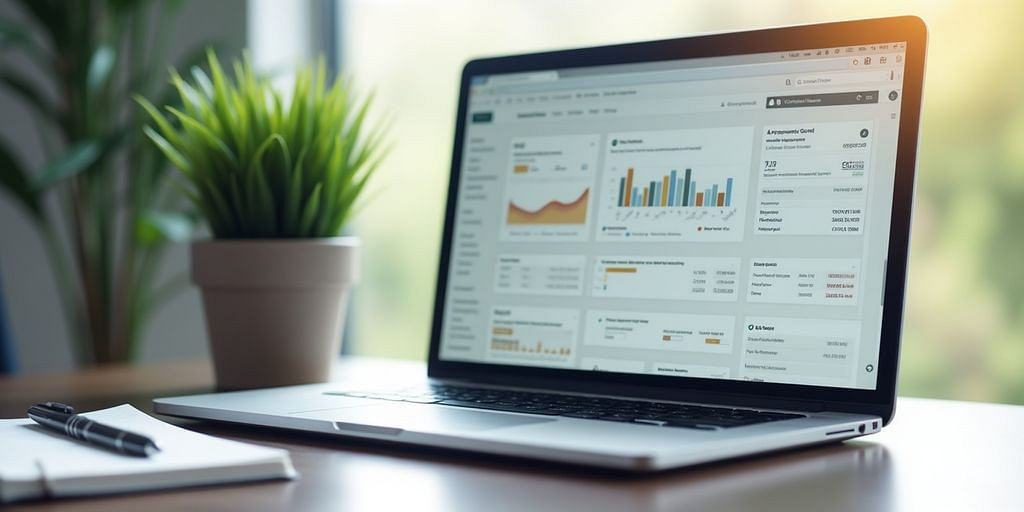
The Ultimate Guide to Choosing the Best Professional Accounting Software for Your Business in 2024
Back To BlogUnderstanding Your Business Needs
When we start looking for accounting software, the first thing we need to do is understand our business needs. This means figuring out what our specific requirements are based on our industry, size, and future plans. Here’s how we can break it down:
Identifying Industry-Specific Requirements
Every industry has its own unique needs. For example, if we run a retail store, we might need software that works well with our point-of-sale system. On the other hand, a construction company may require features to track expenses for different projects. Here are some examples:
- A bakery might focus on inventory management to keep track of ingredients.
- A consulting firm may prioritize time tracking and client billing.
- A restaurant could need robust sales reporting and employee scheduling features.
Assessing Your Business Size and Growth
Next, we should think about the size of our business. Small businesses often need simpler solutions, while larger companies might look for more complex tools that can handle multiple departments. Here’s what to consider:
- How many users will need access?
- Can the software handle our expected growth?
- Is it easy to upgrade as we expand?
Evaluating Transaction Volume and Complexity
Finally, we need to evaluate how many transactions we process and how complex they are. If we have a high volume of transactions, we’ll want software that can keep up without slowing down. Here’s a quick checklist:
- Does it support automated invoicing?
- Can it handle multiple currencies if needed?
- Is there a way to track expenses easily?
Understanding our unique needs is crucial for choosing the right accounting software. It helps us avoid wasting time and money on solutions that don’t fit our business.
By taking the time to assess these factors, we can make a more informed decision and find software that truly meets our needs, ensuring better management and achievement of our business goals.
Key Features to Look for in Professional Accounting Software

When we’re on the hunt for the right accounting software, there are some key features we should definitely keep in mind. These features can make or break our experience!
Automation and Integration Capabilities
- Automated Invoicing: This saves us time by sending out invoices automatically, so we don’t have to worry about it.
- Expense Tracking: Good software should help us categorize expenses and attach receipts easily.
- Integration: We want software that can connect with other tools we use, making our operations smooth and efficient.
User-Friendly Interface and Accessibility
- Easy Navigation: The software should be simple to use, even for those who aren’t tech-savvy.
- Mobile Access: We should be able to check our accounts from anywhere, anytime.
- Customizable Dashboards: Having a dashboard that we can tailor to our needs helps us see what’s important at a glance.
Security and Compliance Features
- Data Protection: Security should be a top priority since we handle sensitive client data. We need software that keeps our information safe.
- Compliance: The software should help us stay compliant with financial regulations, reducing the risk of penalties.
- Customer Support: If we run into issues, having reliable customer support is crucial for a smooth experience.
By focusing on these features, we can ensure that we choose accounting software that not only meets our current needs but also supports our future growth. This way, we can manage our finances effectively and confidently!
Comparing Top Professional Accounting Software Options
When it comes to picking the right accounting software, we have a lot of great options to consider. Let’s dive into some of the top choices for 2024!
QuickBooks vs. Xero: Which is Right for You?
QuickBooks is often seen as the go-to for many small businesses. It’s user-friendly and has a ton of features. On the other hand, Xero shines with its cloud-based system, allowing for real-time updates and unlimited users on all plans. Here’s a quick comparison:
Exploring Zoho Books and FreshBooks
Zoho Books is another solid choice, especially for those who want a comprehensive solution at a reasonable price. It offers great automation features. FreshBooks, however, is fantastic for invoicing and has a super handy mobile app for tracking time and expenses on the go. Here’s what we like about them:
- Zoho Books:
- Affordable pricing
- Strong automation features
- Good for small to medium businesses
- FreshBooks:
- Excellent invoicing capabilities
- Easy to use mobile app
- Great for service-based businesses
Niche Solutions for Specialized Industries
Sometimes, the best software is one that’s tailored to specific industries. For example:
- Construction: Look for software with job costing features.
- Retail: Choose options that integrate with POS systems.
- Nonprofits: Find software that helps with grant tracking and donor management.
In the end, the best accounting software for your business is the one that fits your unique needs and helps you manage your finances effectively.
By comparing these options, we can find the best accounting software for small business of 2024 that suits our needs!
Making the Final Decision

When it comes to choosing the right accounting software, we need to take a moment to really think about our options. Balancing cost with features is crucial. We want to make sure we’re getting the best bang for our buck without sacrificing the tools we need to succeed.
Balancing Cost with Features
- Identify your budget: Before diving into options, let’s set a clear budget. This helps narrow down choices.
- List essential features: What do we absolutely need? Make a list of must-have features versus nice-to-haves.
- Compare pricing plans: Look at different software options and their pricing tiers. Some might offer more for less!
Consulting with Financial Advisors
It’s always a good idea to get a second opinion. Consulting with financial advisors can provide insights we might not have considered. They can help us understand the long-term implications of our choice.
Trial and Error: Testing Before Committing
Before we make a final decision, let’s take advantage of free trials. Many software options offer trial periods, allowing us to test the waters. This way, we can see if the software fits our needs without any commitment.
Remember, choosing the right accounting software is a big step for our business. Taking the time to evaluate our options can lead to better financial management and growth.
In summary, making the final decision on accounting software involves balancing costs, consulting experts, and testing options. Let’s make sure we choose wisely!
Frequently Asked Questions
What should I consider when choosing accounting software?
When picking accounting software, think about your business needs, budget, and what features you really need. It's important to find software that fits your specific requirements.
Is there a best accounting software for small businesses?
There's no one-size-fits-all answer. The best accounting software for a small business depends on what that business needs. Options like QuickBooks and Xero are popular, but you should choose what works best for you.
Can I try accounting software before buying it?
Yes! Many accounting software options offer free trials. This lets you test out the features and see if it’s a good fit for your business before making a purchase.
